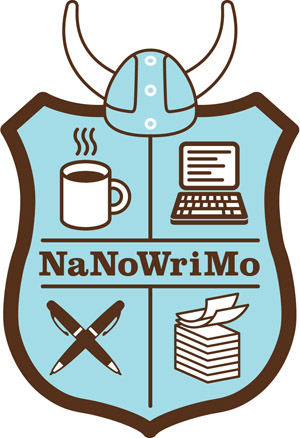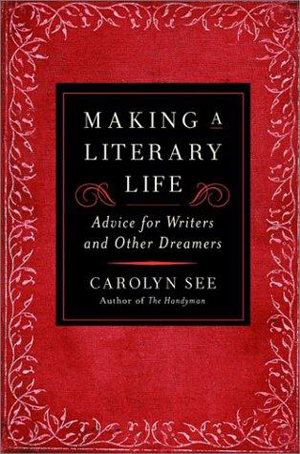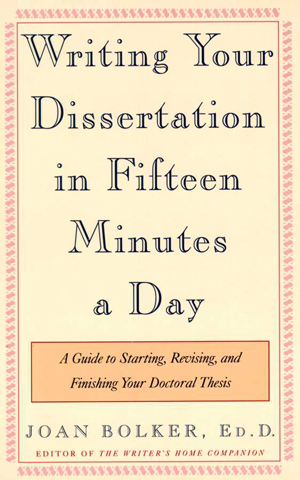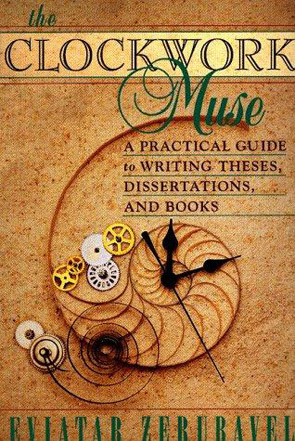For the Resolute at New Year’s: Promises, Process, and Progress
 Oaths, vows, geasa, bindings–you love reading about that kind of thing, or you wouldn’t be here at Black Gate. A vow is powerful magic. A vow written or witnessed is more powerful still.
Oaths, vows, geasa, bindings–you love reading about that kind of thing, or you wouldn’t be here at Black Gate. A vow is powerful magic. A vow written or witnessed is more powerful still.
You would think, then, that the New Year’s resolutions that saturate our culture this time of year would work better than they do. There’s lots of help out there for people who make resolutions about physical fitness, but not so much for people who make resolutions about their writing. How do you come up with a writing resolution that you’ll be glad to fulfill, not just when it’s all over, but while you’re actually doing the work? If you’ve already made a resolution, how do you follow through on it? Maybe last year you tried the crazy ordeal that is Nanowrimo, and you’re looking for a way to tap into its productivity that is actually sustainable. Maybe Nanowrimo’s cheery cultishness turned you off, and you’re sure there must be another way.
There’s an abundance of other ways, thank goodness. Although I have fond memories of frenzied November write-ins, and my novella that’s slated to appear in a forthcoming issue of Black Gate got its start as the first chapter of a Nanowrimo project, my Nanowrimo survival skills are some of the least sustainable writing behaviors in my repertoire. I have some very different ones that have helped me stay in the game for years and finish some long, daunting projects. I want to tell you about some books on process that have been of enduring use to me in broadening that repertoire.
A Literary Month or a Literary Life
Only one of the three books I’ll discuss today is about writing fiction. Most fiction how-to books concentrate on craftsmanship. Of course craftsmanship is important, but if what you struggle with is more along the lines of (1) consistently making time to write, (2) actually using that time for writing, (3) finishing what you write, and (4) getting your work in front of readers, then essays and exercises about craft aren’t what you need. I’ll write about books on craft some other day (or you can look over here at an essay about one of my old favorites if you need to work on your craft right away).
 If what you want to accomplish is to write a book, then Nanowrimo may be all you need. If what you’re aiming to do is to write books in the plural, habitually, for all the rest of your days, then a better recipe can be found in Carolyn See’s Making a Literary Life. The most condensed version of her recipe would be, write a thousand words of story and one charming note to a writing or publishing professional you admire, every day, forever. See spends a good deal of time explaining how to parlay those two behaviors–so much easier to name than to do–into a career. She also devotes some pages to explaining why she views both as necessary, and how they can both be accomplished. (The very introverted and the very blocked may doubt they are both possible, but fear not.)
If what you want to accomplish is to write a book, then Nanowrimo may be all you need. If what you’re aiming to do is to write books in the plural, habitually, for all the rest of your days, then a better recipe can be found in Carolyn See’s Making a Literary Life. The most condensed version of her recipe would be, write a thousand words of story and one charming note to a writing or publishing professional you admire, every day, forever. See spends a good deal of time explaining how to parlay those two behaviors–so much easier to name than to do–into a career. She also devotes some pages to explaining why she views both as necessary, and how they can both be accomplished. (The very introverted and the very blocked may doubt they are both possible, but fear not.)
For a few years before my children were born, See’s proposed disciplines were the ones I used, and they served me very well–with one amendment. She insists on the importance of making the charming note a hand-written letter on paper, sent by postal mail. She has her reasons and argues for them, but I found that for writers of my own generation, and writers in the genres I read, a better way of developing an ongoing collegial conversation was to read their blogs and comment there regularly.
The book is worth reading, and its methods are worth trying and adapting, for any writer, even one with a repertoire of disciplines that works well already. I hope Carolyn See is wrong about one thing: that the thousand words of story and one charming note a day must be a daily minimum forever. My days go to wrangling my small children, my evenings to teaching, and when I get home, exhausted, from house calls with my tutoring students, my writing day begins at about 10:00pm.
The one part of See’s method that I have fought to retain is to do something for my writing every day. To keep the two parallel processes of creative production and collegial dialogue constant, I usually have to alternate days. My children will eventually grow into the ability to amuse themselves unsupervised for five minutes at a stretch without causing bodily injury or property damage…surely they must, all the veteran parents say so. Meanwhile, I can’t wait around, so I have to draw on a wider array of behaviors until I can hit See’s minimums again.
Fifteen Minutes a Day?
One thing I admire about Nanowrimo is the way it can get people with fear blocks past their fear by getting them to write so fast they can’t feel it, at least for a little while. If striking a blow against the fear is the only objective, then yay, you win. If you want to produce pro-quality final drafts, however, this is an inefficient method, because so little of your first draft is usable. Believe me, I know what it is to write scared. It’s been a while, but when I was in grad school, I spent about a year having panic attacks about my dissertation. Literal, full-on panic attacks, utterly paralyzing. Two of the books that got me out of that quagmire would be useful to any writer of long projects, genre fiction very much included. Unless you’ve done time in academia, odds are you’ve never heard of them.
 Near the end of that panic attack year, a book came out called Writing Your Dissertation in Fifteen Minutes a Day. At first, I scoffed. The title kind of provokes that response, as Joan Bolker admits early on in the book. A friend brought me up short, saying, “Sarah, if you were working on your dissertation for as much as five minutes a day, it would be a lifestyle change.” (When a thing like that is true and needs to be said, only the very best friends can say it.) As Bolker notes, if anxiety is one of your writing issues, she can’t make your anxiety go away, but she can help you become consistently productive in a way that gets your goal accomplished, despite the anxiety.
Near the end of that panic attack year, a book came out called Writing Your Dissertation in Fifteen Minutes a Day. At first, I scoffed. The title kind of provokes that response, as Joan Bolker admits early on in the book. A friend brought me up short, saying, “Sarah, if you were working on your dissertation for as much as five minutes a day, it would be a lifestyle change.” (When a thing like that is true and needs to be said, only the very best friends can say it.) As Bolker notes, if anxiety is one of your writing issues, she can’t make your anxiety go away, but she can help you become consistently productive in a way that gets your goal accomplished, despite the anxiety.
The book is sort of a hodgepodge of techniques, some of them for managing the unruly mind, and some for managing the unruly calendar. A few parts are so specific to life in academia that you can skip over them if you’re reading as a fiction writer.
It’s worth tracking down even if anxiety has never yet been one of your writing issues. After I escaped from academia, I had an exhilarating year in which I roughed out 300,000 words of fiction, working an average of four hours a day, and the following year was nearly as productive, though heavier on the polish. Great, I thought, my mere fifteen-minute-days are behind me forever! Then I had kids.
Knowing I can inch my way to the end of a long project even with very short writing sessions, that I have done it before, has been crucial. Did you know preschool-age children interrupt their caregivers with requests and demands three times a minute, on average? Studies Have Shown! All those requests for apple juice and help with shoelaces can be as paralyzing as the panic attacks used to be, and some of Bolker’s techniques transfer surprisingly well to my current challenges. Maybe to yours, too.
She notes that one of the most intimidating aspects of working on a long project is the feeling that, if you once sit down to start it, you will never be free to get up again until it’s done. Especially in the early stages, when you know you’ve got months or years of work ahead of you, this can overwhelm a writer. The trick that got me out of this particular trap is counterintuitive: you promise yourself that as soon as you have reached some very modest predetermined amount of time, you will stop your writing session, regardless of how much or little you’ve produced, regardless of whether you’re on a roll. Bolker recommends starting with as small an increment as you need to, and expanding the increment only after you’ve started to look forward to your short writing sessions.
My particular adaptation of this technique was to get very short incense sticks (high-quality Buddhist monastery meditation ones, not cheap stinky stuff) that took about twenty minutes to finish burning. When the incense stick had burned down, I would stop writing. As the technique gradually drained my dread from my writing process, I’d order longer sticks that would last through a longer session. One benefit of this adaptation was that the scent became a cue to my unconscious mind that it was time to focus. It was a sort of auto-Pavlovian brain hack.
Clockwork Muses Aren’t Just for Steampunk Anymore
 One short, elegant book that will be of help to anyone writing a long, sprawling book is Eviatar Zerubavel’s The Clockwork Muse. (Plus, you get an excuse to say “Eviatar Zerubavel,” which is just plain fun if you have the phonemes for it. Doesn’t he sound like he ought to be a character from some Sea of Jade city in a George R. R. Martin novel?) Zerubavel is a sociologist who studies how people organize time. When The Clockwork Muse was still a work in progress from which he gave occasional presentations, he was best known for his research on the way medieval Benedictine monks had, for all practical purposes, invented the way our culture uses the week as a unit of time. While directing his grad students’ dissertations, he noticed that conventional time management techniques didn’t lend themselves well to writing books. His students suffered a lot, needlessly, while trying to apply the wrong conceptual tools to their writing processes.
One short, elegant book that will be of help to anyone writing a long, sprawling book is Eviatar Zerubavel’s The Clockwork Muse. (Plus, you get an excuse to say “Eviatar Zerubavel,” which is just plain fun if you have the phonemes for it. Doesn’t he sound like he ought to be a character from some Sea of Jade city in a George R. R. Martin novel?) Zerubavel is a sociologist who studies how people organize time. When The Clockwork Muse was still a work in progress from which he gave occasional presentations, he was best known for his research on the way medieval Benedictine monks had, for all practical purposes, invented the way our culture uses the week as a unit of time. While directing his grad students’ dissertations, he noticed that conventional time management techniques didn’t lend themselves well to writing books. His students suffered a lot, needlessly, while trying to apply the wrong conceptual tools to their writing processes.
So Zerubavel undertook a work of compassion, searching in an impressive array of places for time management techniques that can help writers of long projects. The result is tremendously valuable, in part because it is so flexible. It turns out writers don’t all have the same problems, and solutions that work for some writers may not work even for others struggling with the same obstacle. Okay, you may already have known that part, but most books on time management don’t seem to. The business world’s time management gurus love to tell you that delegation is the solution to all ills, but even if you could delegate the imaginative work of writing your book, would you want to? Zerubavel gets it. Your document may exist primarily as an electronic file in some virtual cloud, but you produce that document in a physical space, using your physical body, during the limited hours of your days, and writing is not the only thing that needs to happen during those hours.
I especially appreciated Zerubavel’s respect for the competing, non-writing obligations. To be sustainable, a writing discipline has to be compatible with the core personal relationships in your life. The Nanowrimo trick of telling everybody who relies on you to give you extra slack because you’re doing this crazy writing thing for just one month is obviously not compatible with making a long-term writing life.
One of Zerubavel’s suggestions that was especially useful to me was that you need to know what kinds of time-chunks will allow you to do the most challenging, most attention-intensive parts of your job, and what kinds of time chunks will only allow you to do the unglamorous mental drudge work that supports the thrilling parts. There are lots of tasks necessary to finishing a long project that do only require half a brain, so you can be surprisingly productive while distracted, tired, sick, or whatever. What’s important here is that you not burn up your precious A-time hours on tasks that only need B-time, and that you not frustrate and demoralize yourself by trying to do tasks that require A-time on a day when B-time is all you have to work with. Again, once it’s pointed out, it seems kind of obvious, but while I was trying to invent my first personal writing discipline, I needed to have it pointed out.
Results Not Yet Reproduced
An intriguing article on a related time-management technique for writers is this post about how one fantasy writer went from producing 2,000 words per day to 10,000 words per day. I can’t vouch for her methods personally yet, since I only discovered the article recently, but I’ll certainly be trying them. Rachel Aaron’s impressive word count claims seemed improbable to me at first, but her account of how she came up with her current discipline, and which problems gave rise to it, sounds so much of a piece with the things that worked for me from Bolker’s and Zerubavel’s books, I’m persuaded that it’s possible for her. I’m hopeful that it might be possible for me.
If it works, you’ll certainly hear more from me about it here.
Sarah Avery’s short story “The War of the Wheat Berry Year” appeared in the last print issue of Black Gate. A related novella, “The Imlen Bastard,” is slated to appear in BG‘s new online incarnation. Her contemporary fantasy novella collection, Tales from Rugosa Coven, follows the adventures of some very modern Pagans in a supernatural version of New Jersey even weirder than the one you think you know. You can keep up with her at her website, sarahavery.com, and follow her on Twitter.
I know I wrote you a long email about this, but GREAT BLOG, Sarah!
These all look like tremendous resources — thank you!
It helps to know there are other people out there who faces similar “distractions” (work, family) and still manage to find the time to write. =)
Sarah,thanks for the wonderful article. I just ordered Clockwork Muse and read Rachel Aaron’s article. Keeping my fingers crossed….
Barbara
Great stuff here, thanks!
Thank you all, and joyful writing to you.